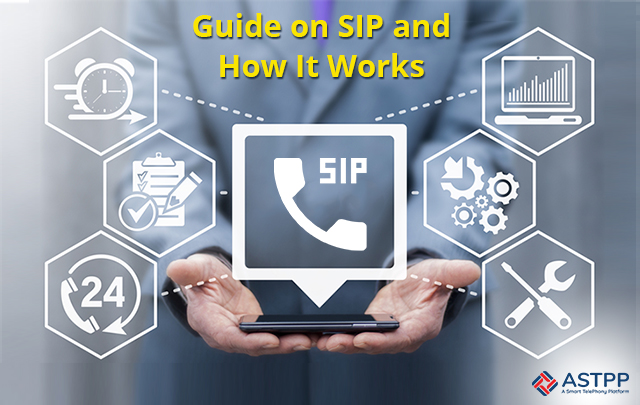Meaning of SIP and SIP Calling System
SIP (Session Initiation Protocol) is a signaling protocol that allows users to make voice and video calls over the internet. Different types of VoIP solutions can be developed using SIP, including, smart VoIP solutions. The calls carried out through the SIP-based VoIP solutions are often free or at least cheaper than traditional calling.
Need for Using SIP
SIP allows people located in different parts of the world to communicate with each other just by using the computer and mobile over the internet. It is an effective means to cut down on the communication cost as the calls made globally between SIP users are free. There is no geographical restriction or barrier or any hidden cost involved. Switching over to the SIP calling system by using a smart VoIP solution from the traditional telephony system ends up saving a lot of money for businesses as well as individuals. Many businesses make use of SIP for both internal and external communication.
Requirements for SIP-Based Communication
If an individual wants to communicate using the SIP technology, he/she is required to have the following:
1) A SIP Account/Address
A SIP account is something similar to a phone number that we have in the traditional landline system. It is unique for each individual across the globe. There are many different SIP service providers offering SIP accounts. A SIP address resembles the email address and has a user name and a domain. When you register for a SIP account with a service provider, you receive a SIP address. This SIP address is the SIP version of a phone number that people use to call each other.
Read Also:- SIP Calling – A Complete Guide To Follow
2) A SIP Client
It is a software program or a mobile app that the user needs to install on the computer or mobile in order to make SIP calls. The main role of a SIP client which can be a smart VoIP solution is to establish real-time communication. It provides an interface for the user to communicate effectively.
3) An active Internet Connection
An internet connection with sufficient bandwidth is a must for making and receiving SIP calls. While SIP voice calls can work on low bandwidth as well, SIP video calls require high bandwidth.
4) Hardware Devices
In order to listen to what is being said and to communicate your voice to the other person, hearing and talking devices like microphone, headset and earpieces are required. In addition to these, video calling requires a webcam too.
5) Friends to Talk To
For making calls to your buddies, pals or associates, they need to have a SIP account and SIP address similar to what you have. SIP calling just requires a SIP address and you are ready to go. On the other hand, one can also talk with people that use traditional lines instead of SIP lines using a smart VoIP solution working on top of the SIP model.
Functioning of SIP
Once a user gets a SIP address and the SIP client is successfully installed on the computer or mobile phone, the configuration of the SIP client is needed. This is not much of a problem in modern times as it is taken care of by the configuration wizards which are available. However, you need to key in your SIP credentials and fill in the required fields in the SIP client and you are ready to launch in a few minutes. When a user uses a specific SIP solution such as a mobile SIP dialer, the configurations are provided by the service provider.
Considering the benefits that SIP has, it is evident that any VoIP solution developed by using the true potential of SIP is a very well established communication solution because of its reliability, huge potential, cost savings, and user friendly interface.





